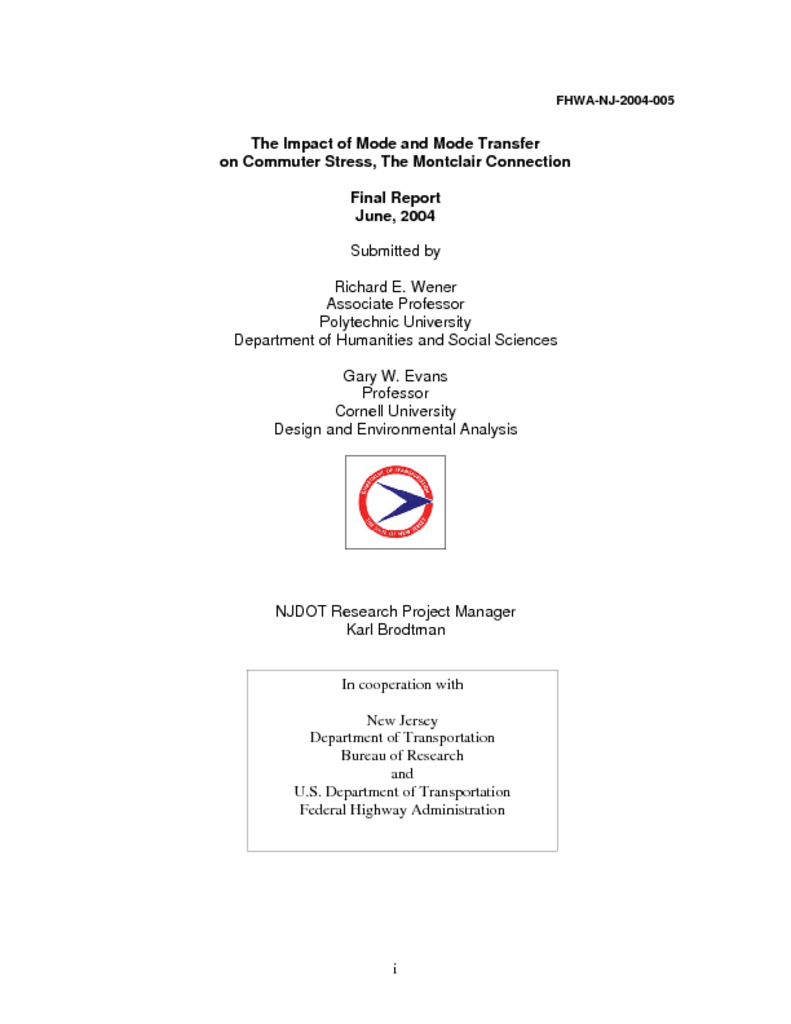This study was a natural experiment of the effects of a major improvement to the infrastructure of a commuter rail line on commuter stress. The study used a multimethod approach and both cross-sectional and longitudinal data were collection by using a pre-test/post-test design including both within and between group comparisons. On psychophysiological, self-report, well being, and job strain measures those using the new service show reduced stress in the post-change period, while those staying with the previous service did not. Predictability and trip effort did not mediate these effects. Commuters who switched to the new train service experience reduced level of job strain after the implementation of the line. We also found that women who had children at home were more stressed originally and more improved by the change, on motivation job strain measures.




